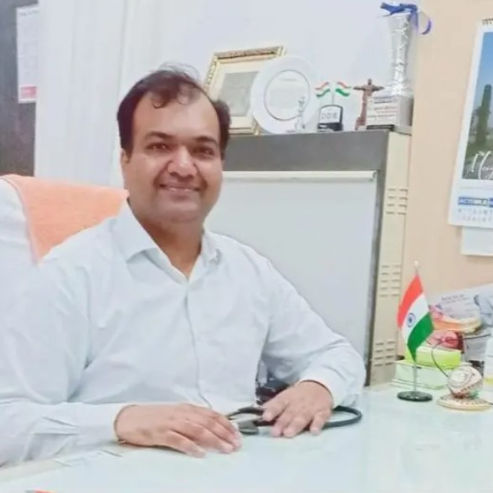How To Reduce Motions?
Find effective strategies to reduce frequent bowel movements. Learn about dietary adjustments, lifestyle changes, and home remedies to manage digestive health.

Written by
Last updated on 3rd Jul, 2025
Frequent bowel movements, often referred to as "loose motions" or diarrhoea, can be uncomfortable and disruptive to daily life. While occasional changes in bowel habits are normal, persistent issues may require attention. If you're struggling with frequent motions, this guide will help you understand the causes, symptoms, and simple ways to manage the condition effectively.
Understanding Frequent Bowel Movements
Frequent bowel movements occur when you pass stools more often than usual, often with a watery or loose consistency. While occasional diarrhoea is common and usually resolves on its own, chronic or severe cases may indicate an underlying health issue.
Common Causes
Some of the common causes of frequent bowel movements are as follows:
1. Infections: Viral, bacterial, or parasitic infections (like food poisoning or stomach flu) can trigger diarrhoea.
2. Dietary Factors: Spicy, greasy, or high-fibre foods, lactose intolerance, or artificial sweeteners can upset digestion.
3. Medications: Antibiotics, antacids, or certain blood pressure medications may cause loose stools.
4. Digestive Disorders: Conditions like irritable bowel syndrome (IBS), inflammatory bowel disease (IBD), or coeliac disease can lead to frequent motions.
5. Stress & Anxiety: Emotional stress can affect gut health and digestion.
6. Dehydration: Lack of fluids can sometimes worsen bowel irregularities.
Symptoms to Watch For
Common symptoms include:
Watery or loose stools
Abdominal cramps or bloating
Urgency to use the bathroom
Nausea or vomiting (in some cases)
Fever (if caused by infection)
If symptoms persist for more than 2-3 days, or if you notice blood in stools, severe dehydration, or high fever, seek medical attention immediately.
Consult Top Gastroenterologist
Tips to Reduce Frequent Motions
Below are the tips to reduce frequent motions:
1. Stay Hydrated
Diarrhoea can lead to dehydration, so drink plenty of fluids like:
Water
Oral rehydration solutions (ORS)
Coconut water
Herbal teas (ginger or chamomile)
Avoid caffeine, alcohol, and sugary drinks, as they can worsen dehydration.
2. Follow the BRAT Diet
The BRAT diet (Bananas, Rice, Applesauce, Toast) is gentle on the stomach and helps firm up stools. Other easy-to-digest foods include:
Boiled potatoes
Oatmeal
Yogurt (with probiotics)
Steamed vegetables
Avoid spicy, fried, or high-fibre foods until your digestion improves.
3. Take Probiotics
Probiotics (found in yoghurt, kefir, or supplements) help restore healthy gut bacteria, especially after infections or antibiotic use.
4. Avoid Trigger Foods
Identify and limit foods that worsen diarrhoea, such as:
Dairy (if lactose intolerant)
Artificial sweeteners (sorbitol, xylitol)
High-fat or spicy meals
5. Manage Stress
Since stress affects digestion, try relaxation techniques like:
Deep breathing exercises
Yoga or meditation
Regular light exercise
6. Over-the-Counter Medications (If Needed)
Anti-diarrhoeal medicines (like loperamide) can provide short-term relief, but avoid them if you have a bacterial infection—consult a doctor first.
7. Practise Good Hygiene
Wash hands frequently to prevent infections, especially before eating or after using the restroom.
When to See a Doctor?
While most cases resolve on their own, consult a healthcare provider if you experience:
Diarrhea lasting more than 48 hours
Severe dehydration (dry mouth, dizziness, dark urine)
Blood or mucus in stools
High fever (above 101°F)
Unexplained weight loss
Conclusion
In conclusion, managing frequent bowel movements is possible through simple lifestyle changes, a balanced diet, and proper hydration. By incorporating fiber-rich foods, avoiding triggers, and practising stress-reduction techniques, you can support your digestive system and reduce the frequency of motions. However, if symptoms persist or worsen, it’s important to consult a healthcare professional to identify and address any underlying conditions. Taking proactive steps today can lead to improved digestive health and overall well-being.
Consult Top Gastroenterologist
Consult Top Gastroenterologist

Dr. Vasanthasree Nair
General Practitioner
15 Years • MBBS
Angamaly
Apollo 24|7 Clinic - Kerala, Angamaly
(425+ Patients)

Dr. M L Ezhilarasan
General Practitioner
6 Years • MBBS
Visakhapatnam
Apollo 24|7 Clinic - Andhra Pradesh, Visakhapatnam

Dr D M Karthik
General Practitioner
4 Years • MBBS, Fellowship in Diabetes Mellitus, Advance certificate in Diabetes Mellitus, Derma Nutrition Certification
Visakhapatnam
Apollo 24|7 Clinic - Andhra Pradesh, Visakhapatnam

Dr. Mohammed Kamran
General Practitioner
5 Years • MBBS, FIDM
Nashik
Apollo 24|7 Clinic - Maharashtra, Nashik

Dr. D Bhanu Prakash
General Practitioner
10 Years • MBBS, AFIH, Advanced certificate in critical care medicine, Fellowship in critical care medicine
Hyderabad
Apollo 24|7 Clinic, Hyderabad
Consult Top Gastroenterologist

Dr Harish K C
Gastroenterology/gi Medicine Specialist
15 Years • MBBS MD DM MRCP(UK) (SCE-Gastroenterology and Hepatology)
Bangalore
Manipal Hospital, Bangalore

Dr. Paramesh K N
Gastroenterology/gi Medicine Specialist
16 Years • MBBS, MS ( General Surgery), DNB ( Surgical Gastroenterology)
Hyderabad
Sprint Diagnostics Centre, Hyderabad

Dr Rohit Sureka
Gastroenterology/gi Medicine Specialist
19 Years • MBBS, DNB General Medicine, DNB Gastroenterology
Jaipur
Triveni Gastro Care, Jaipur

Dr. Gorantla Sarath Chandra
Gastroenterology/gi Medicine Specialist
15 Years • MD, DM (Gastro)
Hyderabad
Star Hospital, Financial District, Hyderabad
(225+ Patients)

Dr Ajesh Bansal
Gastroenterology/gi Medicine Specialist
11 Years • MBBS, MD General Medicine, DM Gastroenterology
Bathinda
Crystal Healthcare, Bathinda